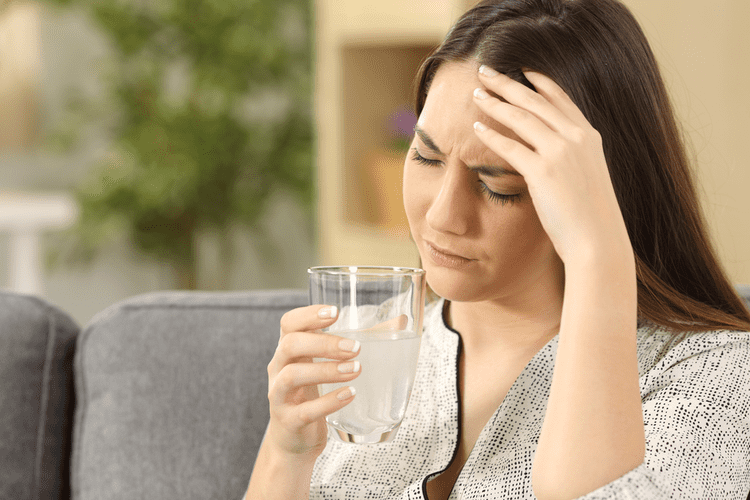Content
Treatment for alcohol use disorder can vary, depending on your needs. Treatment may involve a brief intervention, individual or group counseling, an outpatient program, or a residential inpatient stay. Working to stop alcohol https://ecosoberhouse.com/ use to improve quality of life is the main treatment goal. Always think about thebenefits of quitting alcohol and how they will improve your life. It may also help to think about the negatives that alcohol causes.

It can be difficult staying motivated to overcome alcoholism, yet change is possible. Maintaining your motivation through the lifelong process that is recovery can be difficult. Practical steps can be taken towards recovery if you can remember, replace and re-engage. Overcoming alcoholism is a difficult process, and it can be hard to stay motivated. Still, positive change is possible if you can remember, replace and re-engage. Daily drinking can have serious consequences for a person’s health, both in the short- and long-term.
Plan for triggers and cravings
In the early stage, the alcoholic does not consider himself or herself sick because his or her tolerance is increasing. In the middle stage, the alcoholic is unknowingly physically dependent on alcohol. He or she simply finds that continuing to use alcohol will prevent the problems of withdrawal.
11 ways to curb your drinking – Harvard Health
11 ways to curb your drinking.
Posted: Mon, 16 May 2022 22:14:45 GMT [source]
They are available onsite or can work with our patient in the convenience of their own home. Or do you believe you have you developed a dependency or addiction to alcohol? Or do you feel like you need alcohol first thing in the morning to steady your nerves? If you answered “Yes” to any these questions, you are not alone. An estimated 18 million adult Americans abuse alcohol or are chronic alcoholics. For some drinkers, cutting down on the amount of alcohol they drink simply does not work. They may cut back for a short period of time, but they soon find themselves back to drinking at their usual level.
Alcohol Use & Seizures: How & Why They Happen
At our alcohol rehab, we teach our clients how to use coping skills and supportive communities to help them deal with cravings and learn to live a Healthy Life. At our San Diego addiction treatment center, we know that this is not the case. We show our clients that living a life in recovery from alcoholism is by far more fulfilling than a person who is active in their addiction could possibly imagine.

Once you’ve cut back on your drinking (so you’re at or below the recommended guidelines), examine your drinking habits regularly to see if you’re maintaining this level of drinking. Some people attain their goal only to find that old habits crop up again later. Whether or not this is your first time attempting to quit alcohol, or your 100th how to overcome alcoholism time, I promise you that you have the tools that you need to succeed and quit drinking for good. Whether you are an alcoholic or a problem drinker that is ready to change their path, there are options for you to achieve sobriety and all of the benefits that come with it. In this group, all you need to join is a desire to quit drinking.
Alcohol use disorder
You will also find information on spotting the signs and symptoms of substance use and hotlines for immediate assistance. Gabapentin, a medication used to treat pain conditions and epilepsy, was shown to increase abstinence and reduce heavy drinking. Those taking the medication also reported fewer alcohol cravings and improved mood and sleep. This is not an uncommon concern, but the short answer is “no.” All medications approved for treating alcohol dependence are non-addictive. These medicines are designed to help manage a chronic disease, just as someone might take drugs to keep their asthma or diabetes in check. Due to the anonymous nature of mutual-support groups, it is difficult for researchers to determine their success rates compared with those led by health professionals.
How do I know if my liver is failing?
Acute liver failure can develop quickly in an otherwise healthy person, and it is life-threatening. If you or someone you know suddenly develops a yellowing of the eyes or skin; tenderness in the upper abdomen; or any unusual changes in mental state, personality or behavior, seek medical attention right away.
It gets in the way of my job performance and family responsibilities. Costs of drinkingIt has caused problems in my relationships. Benefits of NOT drinkingMy relationships would probably improve. If you’d like to reduce your drinking, but aren’t aiming for total abstinence, there are a number of strategies that can help. Medication has been an option for many decades, and despite having a strong success rate it is not very well known. Regardless of the path you choose, the most important thing is finding an approach you can stick with. Do your research in advance, make a solid plan, find a good support system, and be patient with yourself.
Alcoholism in the Workplace: A Handbook for Supervisors
Studies show that people who are alcohol dependent are two to three times as likely to suffer from major depression or anxiety over their lifetime. When addressing drinking problems, it’s important to also seek treatment for any accompanying medical and mental health issues. It is important to gauge whether the facility provides all the currently available methods or relies on one approach. You may want to learn if the program or provider offers medication and if mental health issues are addressed together with addiction treatment.
- For example, an employee may become intoxicated while on duty or be arrested for drunk driving.
- Among individuals who have achieved a single year of sobriety, chances of relapse are less than 50%.
- At some point, you will likely encounter employees with problems related to alcohol in dealing with performance, conduct, and leave problems.
- Our mission is to use new technology to make treatment more accessible, and reduce the stigma around problem drinking.
- Those who aren’t addicted to alcohol may be able to quit on their own or with the help of friends.
Becoming aware of where, when, and why you consume alcohol lets you assess your own habits. Are you relying too much on drinking to help you deal with social anxiety? Are you having two drinks with dinner when you’d prefer to have one? If you have a family history of alcoholism, or have struggled with substances in the past, this awareness can be especially important. The exact symptoms of alcohol withdrawal depend upon how much you drink and your individual body chemistry, but they tend to follow a similar pattern. Alcohol is a depressant, so your nervous system compensates for long-term heavy drinking by becoming more hyperactive. Remove alcohol, and you’ll suddenly find yourself in overdrive.
Change your environment
In addition, millions more demonstrate risky alcohol-related behavior in the form of binge drinking. These symptoms develop after the acute withdrawal period and can last for a couple of weeks all the way up to a year depending on the severity of prior alcoholism. The name for this phenomenon is “protracted/post-acute withdrawal symptoms,” or PAWS. With the worst of the physical symptoms behind you in primary detox, your outlook is likely to improve significantly. The first one to two weeks without alcohol is a revolutionary time for many – a chance to redefine relationships, coping mechanisms, and healthy habits. While the most infamous phase of recovery is the initial withdrawal stage, full detoxification can take up to two weeks in some cases. As your body is getting rid of the last remnants of alcohol, psychological symptoms can advance quickly — but so can the positive effects.


